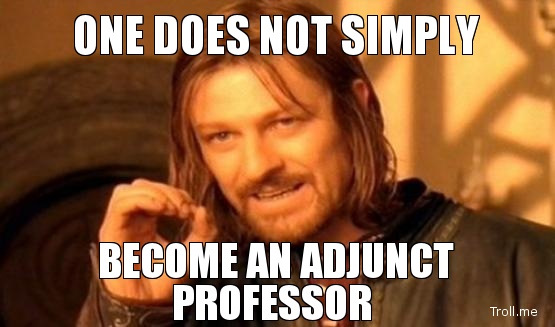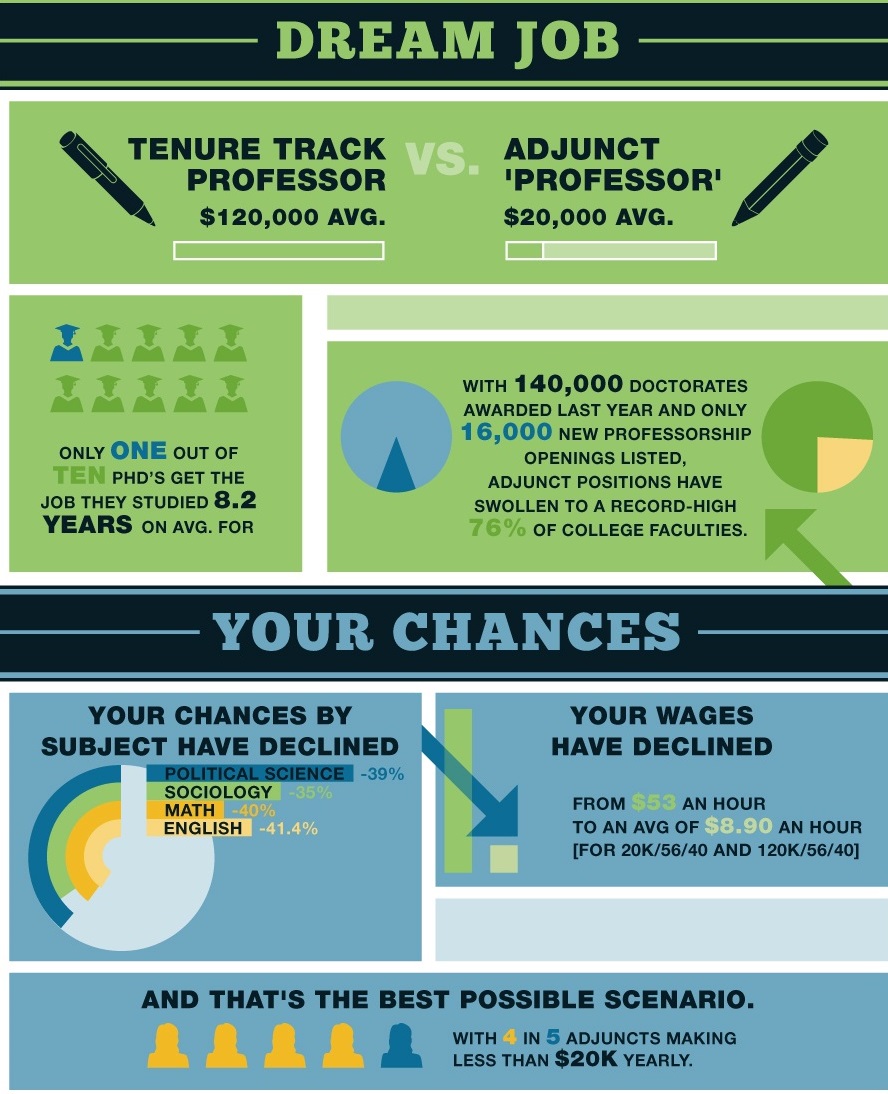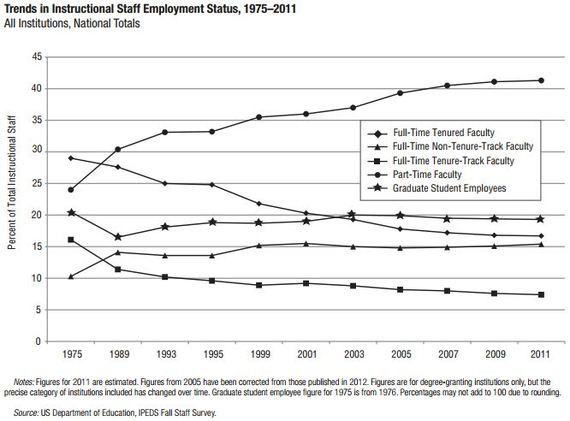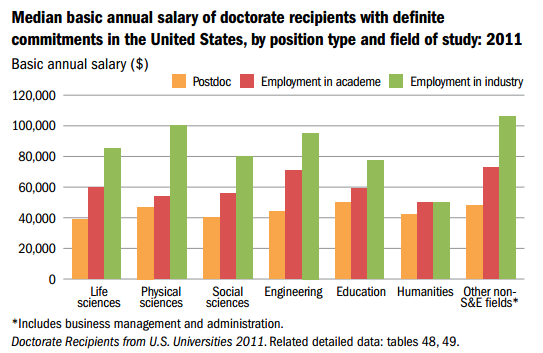“Fulltime faculty jobs have not been easy to come by in recent decades, but this year the new crop of Ph.D. candidates is finding the prospects worse than ever. Public universities are bracing for severe cuts as state legislatures grapple with yawning deficits. At the same time, even the wealthiest private colleges have seen their endowments sink and donations slacken since the financial crisis.” Following in the footsteps of the Chronicle of Higher Education and various academic blogs, the NYT delves into the horrible job prospects for newly-minted humanities PhDs these days. “‘This is a year of no jobs,’ said Catherine Stimpson, the dean of the Graduate School of Arts and Sciences at New York University. Ph.D.s are stacked up, she said, ‘like planes hovering over La Guardia.’“
Even before the downturn, it was clear to me and my cohort that, even coming out of a prestigious Ivy, our prospects for a remunerative and rewarding academic job in the Age of Adjuncts was rather slim. The historical analogy I liked to use then to describe our situation: It’s 1840 and, after years of apprenticeship, we can all make really nice, quality, hand-crafted shoes. But, you know what? They’ve got factories that make those now, for much, much cheaper.
And now, in this economy? Heh. The TLDR version for all of these links, courtesy of Marge Simpson: “Bart, don’t make fun of grad students. They just made a terrible life choice.“







